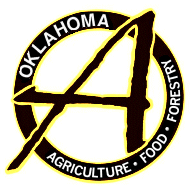Burns, Hilbert Comment on New Meat Processors’ Program
Mike Seals - June 23, 2020 10:06 pm

OKLAHOMA CITY – State Reps. Ty Burns, R-Pawnee, and Kyle Hilbert, R-Bristow, today commented on a new partnership between the Oklahoma Departments of Agriculture, Food and Forestry and Career and Technology Education they are hoping will clear a processing backlog for Oklahoma cattle producers.
State ranchers in recent months have faced a backlog in getting their cattle processed, being told they could have up to a year-and-a-half wait. The problem arose after the shutdown of many national processing plants because of the COVID-19 pandemic and because of a lack of local meat inspectors.
Oklahoma Agriculture Secretary and Commissioner Blayne Arthur and CareerTech Director Dr. Marcie Mack today announced the potential solution to this problem. The Department of Agriculture will work with CareerTech to develop curriculum to offer meat processing and inspection courses to help curb this workforce shortage. This, in turn, will allow for more local processors to produce meat for local ranchers and will allow Oklahoma consumers to buy more local products.
“I’m hoping this course will fill the demand for meat inspectors and promote small butcher shops throughout our state,” Burns said. “I’m thankful to Secretary Arthur and to our leaders at CareerTech for all their work and dedication to Oklahomans.”
Hilbert said, “I’m excited for this opportunity to fill a void in Oklahoma that is so desperately needed and for the opportunity for students to receive training in a career field that will allow them to earn a good income to support themselves and their families.”
Both representatives attended today’s announcement at Central Tech in Drumright in Rep. Burns’ House District. Dr. Mack explained that self-paced online courses will be offered in meat safety, evaluation and selection, which will lead to the knowledge needed to pass industry certification exams, preparing Oklahomans for careers in the meat processing industry.
Secretary Arthur said in addition to addressing the meat processing backlog, this presents an opportunity for rural economic development, which will benefit many rural communities throughout the state.



